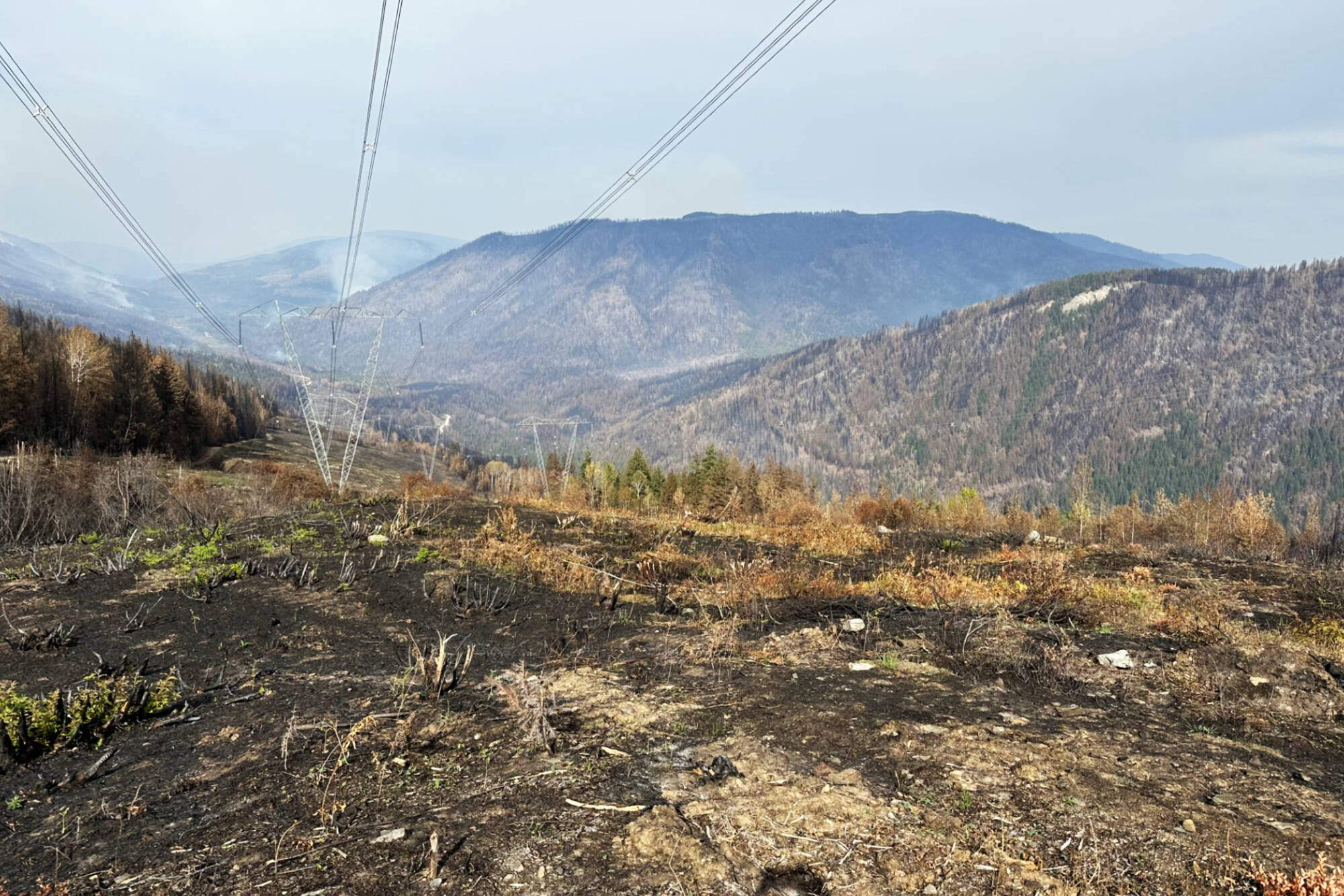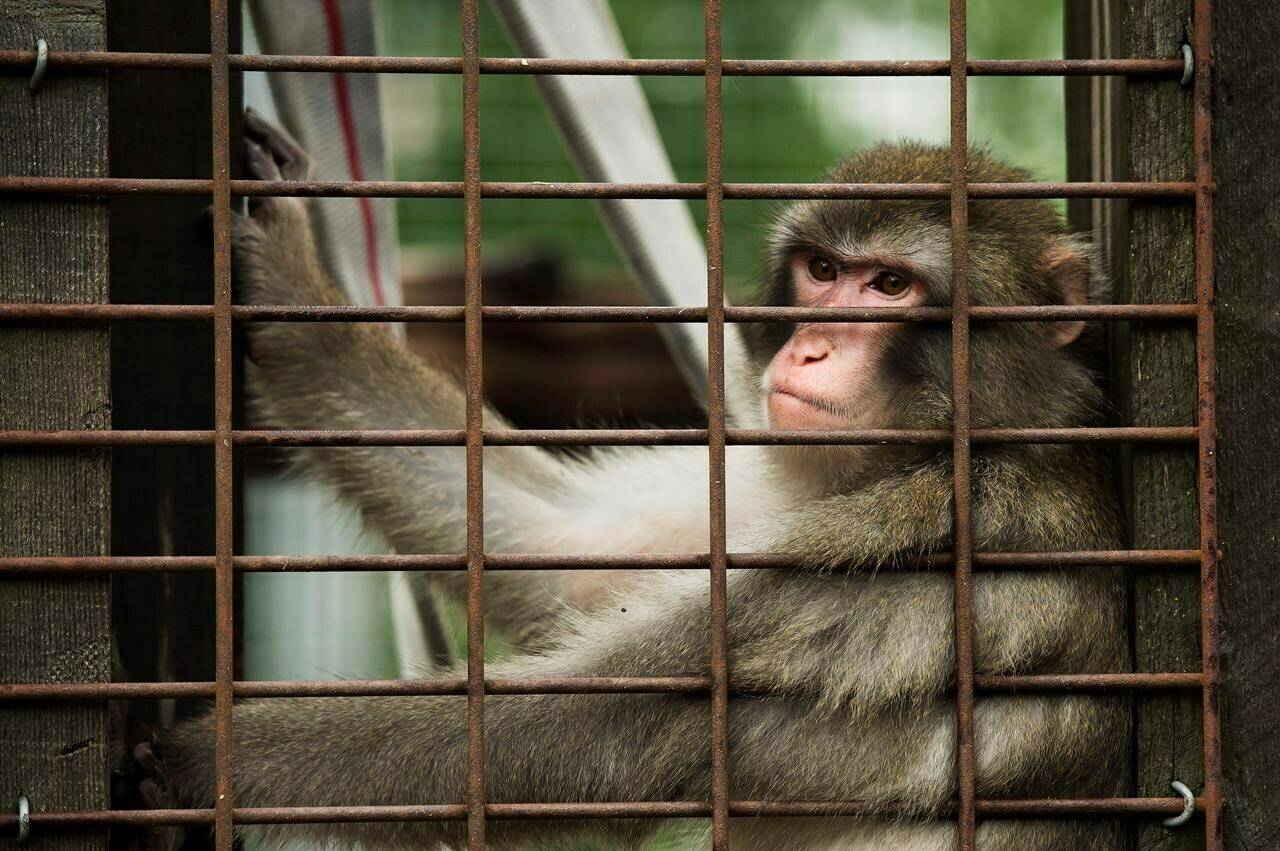The B.C. Forest Practices Board (FPB) is investigating a planned aerial ignition used in the North Shuswap in response to the spread of the Bush Creek East wildfire.
The investigation was prompted by a complaint received on Sept. 18, 2023, regarding an Aug. 17 ignition that occurred near the communities of Lee Creek and Scotch Creek.
“BCWS (BC Wildfire Service) has been notified and FPB is arranging to go on site this month,” said the FPB in an email. “Interviews with relevant people will follow. A panel will consider the investigators’ findings, and recommendations may be made.”
North Shuswap resident Jim Cooperman filed a complaint with the FPB, alleging “gross negligence” by the BCWS in conducting the ignition about two kilometres from his home.
Conducted in the evening of Aug. 17, the ignition occurred over an approximately 2,600-hectare area along a powerline southeast of the Lower East Adams Lake wildfire. On Aug. 18, whipped up by high winds, the Lower East Adams Lake and Bush Creek East wildfires combined, and fire spread into Lee Creek, Scotch Creek and Celista, as well as the Skwlāx First Nation, destroying approximately 250 structures.
Cooperman alleges it was the planned ignition, not the wildfires themselves, that raced down the slope on Aug. 18 and into North Shuswap communities.
“It is obvious to anyone standing on the powerline and looking east to Scotch Creek below, that the back burn was uncontrolled, and travelled down the powerline thanks to the dead brush left from Hydro slashing it in the spring (there are stumps left from the slashing) and blew east to Celista and south to the community of Scotch Creek,” said Cooperman. “You do not need to be an expert to see this evidence.”
Cooperman, however, did bring in an expert to assess the backburn/ignition. Retired registered professional forester Rob Morrow viewed the planned ignition site on Oct. 3. In a draft report, shared by Cooperman with the Observer, Morrow stated the Aug. 17 ignition, failed to meet basic standards of controlled burning in at least five ways. One had to do with control lines. Morrow found no identifiable control lines at the east or west ends of the burn.
“To conduct a controlled burn, the entire area planned for ignition must be surrounded by control lines, non-burnable surfaces, natural or man-made, that can be used to control fire spread.”
Morrow also raised concerns with the ignition area being too large, the burn-off being “hotter than the wildfire,” the hydro line serving as a poor fuel break, and the ignition being conducted prior to a forecasted wind event.
“Favourable burn conditions, with winds blowing north and uphill in the area, were only available for a few hours,” reads the report. “After which, the burn-off was going to be subject to strong winds that would direct the burn-off without any control. There was not adequate time to complete the burn and have it consume the fuels between the burn-off and the main fire before the wind event occurred .”
In his summary, Morrow called the ignition “a very high-risk activity with little chance of success under the extreme conditions on August 17.”
Read more: Forest Practices Board investigates planned back burn in Shuswap region
Read more: Large-scale planned ignition conducted to protect North Shuswap communities
A few days after the firestorm, the director of operations for the BC Wildfire Service defended the planned ignition, saying sustained high winds that changed the course of the fire were responsible for much of the damage.
“We did our planned ignition under the conditions we planned for and it was largely successful,” Cliff Chapman told media. “I want to be perfectly clear: that planned ignition saved hundreds of homes and properties along the north Shuswap.”
Cooperman, however, alleges the planned ignition was responsible for “a billion dollars worth of damage,” including loss or damage of structures, infrastructure and trees, as well as having a negative impact on the local ecosystem.
“It could really damage the salmon and trout habitat,” said Cooperman. “Also there’s a concern we’ll get an algae bloom next year. Ashes are nutrients, you put all that… into the lake, it could create an algae bloom.”
The FPB said its investigation may take six months to a year.
In the meantime, Cooperman argues a number of changes need to be made to how the province addresses wildfires, including BCWS operations.
“All the effort has to be put on initial attack,” said Cooperman. “We need far more equipment, we need far more air power. So a revamped wildfire service that focuses on the initial attack with plenty of skimmer planes and water bombers at their disposal, with linkages to contractors, logging companies, people on the ground… so when fires are in a community, everybody is onboard working on it.
“And then we have to do way more prevention. Salmon Arm needs to have the forest logged a kilometre circle around the community, or Salmon Arm could go up in smoke just like Lytton and the North Shuswap,” said Cooperman. “I mean, I’m a tree-hugger, but I see trees as the problem now. We really have to get into having deciduous trees around our communities instead of conifers.”
With files by Canadian Press.
Sign up for our newsletter to get Salmon Arm stories in your inbox every morning.

